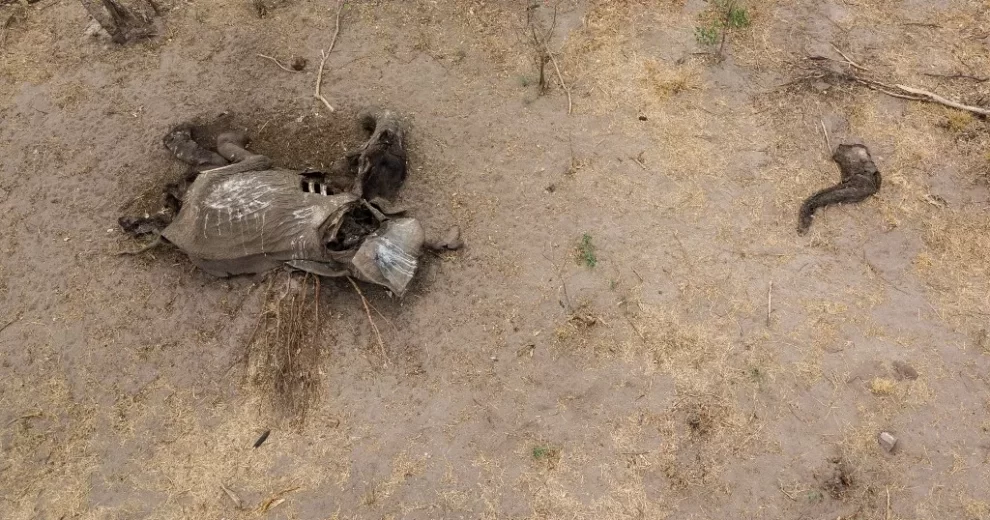In a remote southeastern region of Zimbabwe, approximately 140 volunteers participated in a crucial annual wildlife census, monitoring the state of the nation’s wildlife resources amid a concerning regional drought.
The volunteers, operating in shifts, observed the positive impact of recent rains on the greenery of Gonarezhou National Park, known as the “place of elephants.” However, the park’s landscape tells a tale of desperate elephants damaging baobab and acacia trees while searching for sustenance in the wake of the drought.
While Gonarezhou’s animals are deemed “fortunate,” other wildlife reserves in Zimbabwe have suffered even more due to the adverse effects of climate change-induced drought conditions. Tinashe Farawo, spokesperson for the Zimbabwe Parks and Wildlife Management Authority, expressed distress over the increasing reports of animal anguish this year.
Farawo highlighted the unprecedented challenge posed by climate change, leading to unpredictable weather patterns and prolonged dry spells across the country. He noted that the agency is still compiling statistics, but alarming numbers of elephant and buffalo deaths have been reported in Hwange, Zimbabwe’s largest park. The severity of the situation has prompted the park’s agency to install 100 solar-powered boreholes to provide water for animals.
The impact of climate change extends beyond Zimbabwe, affecting national parks across Africa. Studies reveal that extreme weather events are causing the loss of plants and animals struggling to adapt to extended dry periods and rising temperatures. Zimbabwe’s response includes initiatives like solar-powered boreholes, but animals are still compelled to travel longer distances, often crossing national borders, in search of essential resources.
The Kavango–Zambezi Transfrontier Conservation Area, the world’s largest multi-country conservation area, witnesses animals traversing vast distances. Farawo humorously noted that animals can “eat breakfast in Zimbabwe, lunch in Botswana, and supper in another country.” However, the parched environment poses multiple challenges for animals, as demonstrated by a recent study linking heat, drought, and population density to a bacterial infection that killed elephants in Hwange National Park.
The consequences of climate change are far-reaching, affecting not only elephants but also birds relying on specific trees for breeding. The escalating conflict between humans and animals adds another layer of concern, with communities near national parks experiencing heightened clashes as wildlife encroaches on human settlements in search of scarce resources. Farawo emphasized the increasing human-animal conflict, with the park’s agency receiving a rising number of distress calls in recent years.
Source: Africa News











